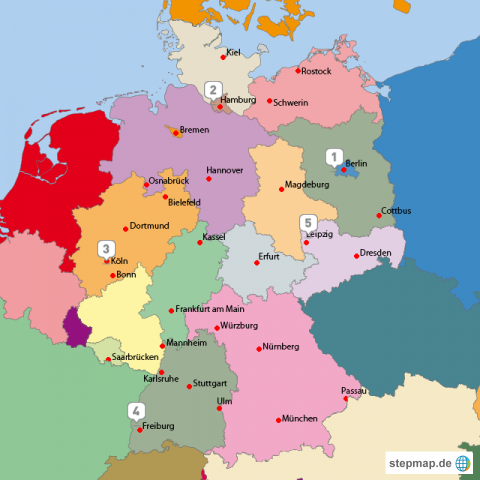Archive for the ‘TuTech’ Category
 |
9. July 2010 – 16:11 by Dorothee Ruetschle (TuTech Innovation GmbH)
|

Photo by fRandi-Shooters on Flickr.com
Europas Netzwerk für ePartizipation PEP-NET – Pan European eParticipation Network – lädt am 23. September 2010 in die historische Speicherstadt der Freien und Hansestadt Hamburg ein. Im Mittelpunkt der von Richard Wilson, dem Begründer von Involve and izwe, moderierten eintägigen Veranstaltung steht das Thema Online-Bürgerbeteiligung – ePartizipation.
Beleuchtet werden insbesondere die Facetten
- ePartizipation in Europa: strategische Ziele vs. Umsetzung
- Die Zukunft der ePartizipation: regional, national und international
- Vorzeigeprojekte der ePartizipation: Berichte aus dem Praxisfeld
Die internationale Tagung ist für die Bedürfnisse von Vertretern aus Verwaltung, Wissenschaft, Wirtschaft und Bürgerorganisationen konzeptioniert. Gerade in Zeiten knapper Kassen stehen verschiedene Ausprägungen der ePartizipation, wie Bürgerhaushalte, die Beteiligung der Bürger an Gesetzgebungsverfahren, Open Data, Bürgerbeteiligung in der Politikfeldgestaltung, cooperative government und Transparenz bei Kommunen, Ländern und Nationen auf der Agenda. PEP-NET widmet sich der Förderung der ePartizipation und schafft mit der Veranstaltung eine besondere Plattform für einen intensiven Austausch, weiterführende Diskussionen und anregende Gespräche mit hochrangigen Persönlichkeiten.
PEP-NET freut sich besonders, die Teilnahme beitragsfrei anbieten zu können. Eine Anmeldung für die limitierte Veranstaltung ist ab sofort über die Online-Registrierung unter https://pep-net.eu/pep-net-summit/ möglich.
Der offizielle Hashtag für die Veranstaltung ist #PEPSUM
Posted in experince, good practice, open data, Projects, TuTech, Uncategorized, Visions | No Comments »
 |
8. June 2010 – 14:32 by Dorothee Ruetschle (TuTech Innovation GmbH)
|


PEP-NET lädt Sie zum Live-Chat mit den Herausgebern Renate Mitterhuber, stellvertretende CIO der Hamburger Verwaltung, und Alexander Koop von der Bertelsmann Stiftung am Montag, den 14. Juni 2010 von 16 bis 17 Uhr auf www.pep-net.eu ein. Über www.pep-net.eu gelangen Sie in das Forum und können dort Ihre Fragen rund um das Thema ePartizipation stellen.
Bürgerhaushalt, Leitbildentwicklung und die Stadt- und Bauleitplanung: in diesen Themengebieten werden vermehrt Beteiligungsverfahren über das Internet durchgeführt. Für politische Mandatsträger, Entscheidungsträger und Mitarbeiter öffentlicher Verwaltungen, insbesondere im Bereich E-Government und IT, stellen die im Leitfaden beschriebenen Handlungsempfehlungen eine wertvolle Beratung dar.
Das Dokument „Leitfaden Online-Konsultation“ wurde von der Bertelsmann Stiftung gemeinsam mit dem Deutschen Städte- und Gemeindebund (DStGB), der Finanzbehörde der Freien und Hansestadt Hamburg und dem Bundesministerium des Innern erstellt. Der Leitfaden steht als pdf (~1 MB) zum Download für Sie bereit.
Die Diskussion findet in deutscher Sprache statt.
Posted in Events, TuTech | No Comments »
 |
27. April 2010 – 11:45 by Evika
|
The WeGov project will develop a toolset that allows full advantage to be taken of a wide range of existing and well established social networking sites (Facebook, Twitter, Bebo, WordPress etc.) to engage citizens in two-way dialogues as part of governance and policymaking processes. A key feature of our approach is to allow policy makers to move away from the limitations inherent in the current practice of using bespoke and dedicated platforms (e.g. specific opinion soliciting websites hosted by government) and instead make full use of the high levels of participation and rich discussions that already take place in existing social networking communities.
In particular, engagement between policy makers and citizens will be mediated via tools that will:
- make it possible to detect, track and mine opinions and discussions on policy oriented topics.
- will allow discussions to be seeded and stimulated through injection of policy discussion points into relevant communities in a secure and managed way.
- will allow the origins and evolution of opinions to be tracked to provide auditable records of provenance, guard against misuse, and ensure trust and privacy for all involved.
Our target audience includes:
- MPs and IT staff from Parliaments,
- Citizens and other stakeholders, such as networks, regional bodies,
- NGOs,
- Businesses,
- International organizations,
- and the media.
Posted in Events, Projects, TuTech, Uncategorized | No Comments »
 |
10. December 2009 – 12:52 by Rolf Luehrs
|
This is the second article about the evaluation of eParticipation projects and their role in participatory democracy, which will be posted by the members of the TuTech team over the course of the next weeks. The first one by Bengt Feil can be found here.
Quantity matters – especially for everything related to the Internet. Just think of the exploding internet penetration rates throughout the recent decades, dizzying stock prices during the new economy or the number of weblogs counted by Technorati.
Since the term web 2.0 has been coined we are flooded by incredibly huge numbers of social network users everyday and only since Obama has managed to mobilise millions of people via the Internet public administrations and politicians seem to consider the participatory potential of the Internet seriously.
However, the flipside of the obsession with scale is that not enough attention is paid to the quality of citizen participation on the Internet. Is a project or service really valuable just because tenth or even hundreds of thousands of users were using it? What does the sheer fact that lots of people wrote to their MP via the Internet or participated in a online petition tells about the contribution of this service to the improvement of political culture or decisions? Or the other way round: Is a political discussion of a certain subject irrelevant just because just a few hundred people participated?
I believe that counting heads or contributions is not a sufficient measure to evaluate what eParticipation can do for Democracy. Even worse, to only stare at numbers obstructs the view to the core strengths of eParticipation like providing a space to express and shape opinions, to exchange arguments, to collaboratively work or create and being heard by political and administrative decision makers.
Still, quantity matters, but for different types of eParticipation to an entirely different extend. If we look ad crowd sourcing-like projects in the political realm it is reasonable to assume that the more citizens participate the better the results will be. If e.g. a public administration wants to learn more about the actual quality and state of streets, buildings and places it would help a lot if as many participants as possible send their comments, photos or videos. But if the same PA asked citizens for proposals on how to more efficiently spend tax payer’s money, the quality of these proposal counts in the first place.
It has been demonstrated quite a few times that deliberative Internet discussions can lead to concrete results, that these results were amplified by traditional media and finally led to better policies. Some of these cases have been introduced here on PEP-NET (1, 2, 3) and none of them managed to attract huge numbers of active participants.
Rather than trying to realise sort of mass-deliberation on particular policies we should try to increase the number of eParticipatory opportunities. A model for this could be the so-called “Long Tail” describing the niche strategy of selling a large number of unique items in relatively small quantities instead of only selling large volumes of a reduced number of popular items. Chris Anderson showed that products which are in low demand or have low sales volume can collectively make up a market share that rivals or exceeds the relatively few current blockbusters. Transferred to the eParticipation domain this would offer the opportunity to achieve high overall participation rates while keeping up a good deliberative quality in the particular projects.
Posted in Projects, Trends, TuTech, Visions | 15 Comments »
 |
20. October 2009 – 15:48 by Rolf Luehrs
|
Like in other European countries participatory budgeting is one of the most prominent examples of citizen participation in politics in Germany. More than 115 municipalities or cities are currently about to implement or have already implemented participatory budgeting projects.
However, there are lots of different concepts of what participatory budgeting exactly means and even more ways to put these concepts into practice. The main differences are the following:
Approach
While participatory budgeting was originally designed as an instrument of direct democracy with a binding decision of the citizenry, most of the European PBs are implemented as consultations: The citizens were given opportunity to have their say but it is up to the elected representatives to finally decide about the proposals.
Scope
In many cases only selected parts of the public budget are under consideration in others the entire budget is subject to citizen participation. Interestingly the scope seems to depend on the chosen approach: When the entire budget is under consideration, the opinions and preferences of the citizens usually are not binding.
Instruments & Channels
Some of the participatory budgeting projects are still implemented using only traditional communication channels. In most cases the Internet is leastwise used to spread information. Quiet a lot of municipalities or cities are providing interactive channels on the Internet to support the offline activities. And in a few cases the Internet is the only channel for the citizens to participate.
In the following I will focus on the cases where citizens have been provided with an interactive website allowing them to express their views and priorities online.

Click on the map for further information
Read the rest of this entry »
Posted in good practice, Projects, Tools, Trends, TuTech | 9 Comments »
 |
10. July 2009 – 11:25 by Roberto Zarro
|
 The Municipality of Reggio Emilia will hold, from the 18th till the 20th of November 2009, the 9th “Conferenza annuale dell’Osservatorio Internazionale di Democrazia Partecipativa (OIDP)” (Annual Conference of the International Observatory of Participative Democracy). The Conference will be dedicated this year to the topic “Young people, citizenship and participative democracy. Dialogue about policies and experiences who build citizenship starting from new generations”. Read the rest of this entry »
The Municipality of Reggio Emilia will hold, from the 18th till the 20th of November 2009, the 9th “Conferenza annuale dell’Osservatorio Internazionale di Democrazia Partecipativa (OIDP)” (Annual Conference of the International Observatory of Participative Democracy). The Conference will be dedicated this year to the topic “Young people, citizenship and participative democracy. Dialogue about policies and experiences who build citizenship starting from new generations”. Read the rest of this entry »
Posted in good practice, TuTech, Uncategorized | No Comments »
 |
26. June 2009 – 10:03 by Civil College
|
The enourmous civil browser factory, Mozilla has just launced their world wide social responsible activity week call – the Mozilla Service Week! It spreads the core message of common development: “We believe the Internet should make life better. Join us the week of September 14-21, 2009, as we take action to make a difference in our communities, our world, our Web.”

I think we agree with them from our job 
The week, which is a great initiative, just like the previously promoted OneWebDay, which has been celebrated among PepNet members.
This initiative is if we can say, more complex.
When we think about our job, our political or either personal perspective, the roles we play in this arena, might have some extra power to get from the community. From those, who are living in the neighbourhood, who are our chat-forum partners, or even just the old grandmother of our friend.
We can help. We can support the community where we belong to – anytime. Mozilla Service Week is an initiative to put focus on this issue for a week, and go and reach out for anybody around us.
I do hope, that this kind of civil activisim is suitable for all of us – and will make us to subsribe and offer voluntary activities individually.
For me the questions is also somewhere a bit below. Can we, or shall we as Pep-net do something for the larger community of citizens in an organized way during this week?
Download the badges, information here:
https://serviceweek.mozilla.org/promote/mozservice09/en_US
You can check some stories here:
https://serviceweek.mozilla.org/activity/stories/en_US
by Csaba
Posted in News, Projects, TuTech | No Comments »
 |
23. June 2009 – 06:48 by Madarász Csaba
|
Democracy is the game where we can change the rules together! How do we make this game more serious, more fair and more fun? Please let us know if you are interested in convening a virtual session at this event on a topic of your choice, or collaborating with us in some way!

Participation Camp, Change the Rules, in New York on June 27,28th, will provide the spark for an explosion of sharing, experimentation and collaboration around this question. Participants may attend a wide range of physical and virtual presentations (or deliver one themselves), compete in a conference wide web participation game called Nomic (https://en.wikipedia.org/wiki/Nomic), or roll up their sleeves in a hands on workshop. For preliminary details see: https://www.participationcamp.org
If you might be interested in collaborating with us, please check out our wiki at: https://barcamp.pbworks.com/ParticipationCamp#view=page
What Makes “Change The Rules” Different?
Virtual/Physical Hybrid Structure: One particular feature of this event is that we will be bridging the physical and virtual worlds. We will be opening up virtual spaces in advance of the actual session so as to engage virtual participants in the project. We will also have a room where virtual presenters can connect with those at the conference.
Open Space/Defined Hybrid Structure: We will be using Open Space principles for the creation of some of the sessions, but will also be seeking out the involvement of those that would like to actively engage participants on a specific topic. If there is an issue or a question that you would like to discuss at this event, please let us know!
Play Game: We will be playing the game, Nomic (https://en.wikipedia.org/wiki/Nomic). This is a game that is designed to teach participants, by virtue of their experience, some of the interesting features of governance, democracy, rule making, rule following, collaboration etc.
Pre-Session Dialogue: We have opened a SkypeChat space that enable those that are interested in the PCamp theme(s) to connect with each other, exchange ideas, plan potential sessions etc. (already opened)
Sustain Dialogue: Due to the fact that virtual environments are accessible from anywhere, it becomes possible for participants to continue their conversations with others after the conclusion of the session. This makes it possible for them to continue to explore the ideas and projects that they are interested in, as well as to cultivate the relationships with those that they have connected with. We hate the fact that what happens when events end is that there is little or no follow up!
Questions/Themes
Here are a few questions that we have been thinking about. Are there any such questions that are of interest to you, and around which you might be interested in organizing a virtual session?
What, generally speaking, is the role that technology can play in fostering citizen engagement?
What are the best tools for creating the right frameworks for fostering citizen engagement?
What are the particular challenges of using open, collaborative, platforms?
What sorts of business models are consistent with ‘open collaboration’? How can organizations that subscribe to these principles also generate revenue?
How do we utilize technology to mobilize the youth vote?
Process
On June 20th, we created a chat space/conversation in Skype to which we invited all those that had expressed interested in participating in an open dialogue on issues relating to open governance. This chat space allow you the opportunity to:
* Introduce yourself and your project to others that are like minded
* Connect with others that might be interested in your project or might have interesting project ideas.
* Learn, via participation, about how open, collaborative, patterns of interaction work
* Learn, via participation, how groups self organize
Posted in TuTech | No Comments »
 |
30. May 2009 – 22:13 by Madarász Csaba
|
Have you heard about Social Innovation Camp?
Not yet? It has been started by Dan McQuillan, an e-campaignin expert, previously working for Amnesty International, and with background in partialphysics on the topic of web-participation-development and social innovations. After the succesful camp in the UK, the Sicamp nano-Barcamp styled hybrid of development event is buzzing Scotland and the CEE region now.
What is Dan saying about this?
We hope Social Innovation Camp shows that if you have a little faith in people, they can do amazing things for all sorts of different reasons – whether it’s to solve a problem; to do something that’s worth doing or because it’s simply really good fun.
We believe the incredible thing about the web and new technologies is that they make all of this possible by helping people to organise things better for themselves. And Social Innovation Camp is all about making that a practical reality by helping people create the next generation of social start-ups.
But our really grand vision is that the Social Innovation Camp might play a small part in creating a big change: a shift where people don’t just complain about stuff that needs fixing or rely on government/companies/charities to do it for them. Instead, we want to give people the confidence, connections and skills they need to start up their own thing and mend something that’s broken.
The focus now on the CEE region, with the help of the CEE Trust. The Social Innovation Camp (SIC), will be a part of the Civil Society Forum in Bratislava in September’09, which is bringing together talented software developers/designers and social innovators from the non-profit, commercial and public sector. Their task is for a couple of days, paired up in teams, to build effective web-based solutions to real social problems.
Based on the successful model pioneered in the United Kingdom, Social Innovation Camp CEE aims to jumpstart a “digital activist” movement across the Central European region, committed to using the Internet for social change.
Beside participation, following Dan on his website https://www.internetartizans.co.uk/ is a useful activity.
Posted in News, TuTech | No Comments »
 |
26. May 2009 – 09:44 by Fraser Henderson - ICELE
|
Just as the web is improving the ability to self-organise it is also pushing down the cost of event management. For a start there is EventBrite, an event registration service which facilitates ticket sales and promotion.
Tools such as eNetworker manage delegates and exhibitors – both prior and post event. Couple this with a free video streaming service such as Ustream and you can also provide live video and real-time chat.
Finally, all good events have some sort of twitter tag: Twitterfall allows you to display and monitor on-line threads as they emerge.
Despite the benefits of digital participation in ‘normally’ controlled environments there is a downside –too often delegates are distracted by their mobile information devices and have less ‘real-world’ interaction with the event and people that they came to witness.
In creating an on-line conversation alongside an event are we distilling the quality of real debate? I am often surprised by the number of people who use laptops during meeting and events – would they revolt if there was no WiFi or mobile access?
Posted in TuTech | No Comments »












